The marriage of these two technologies can only mean something great is in store.
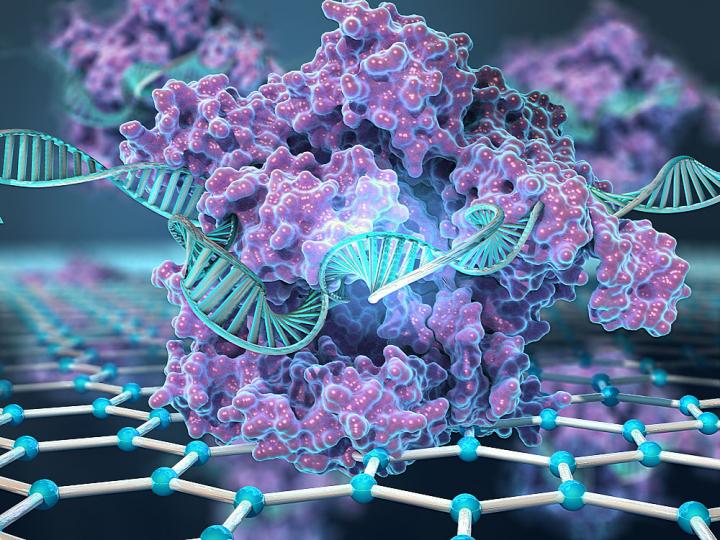

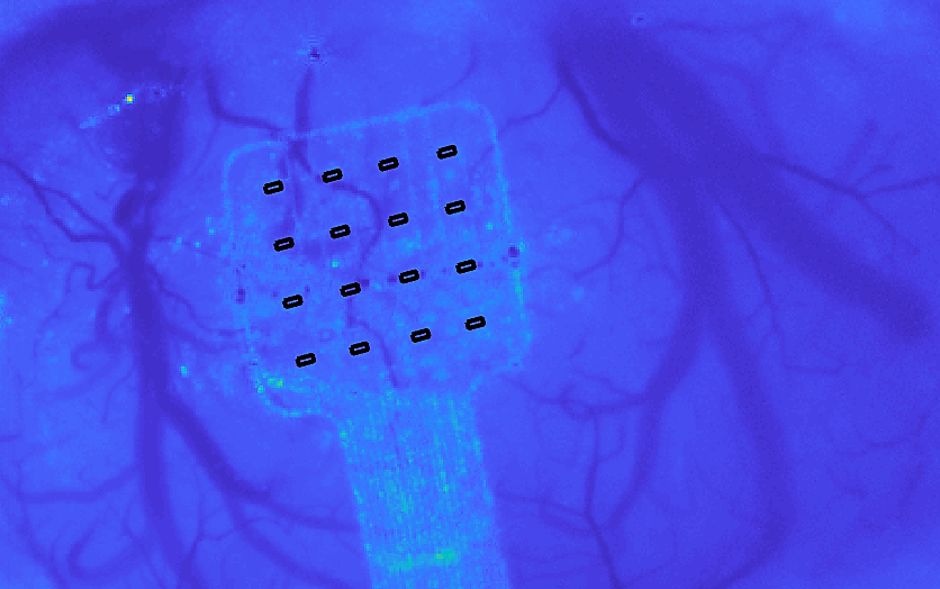
A new graphene-based brain implant could help provide information about the onset and progression of epileptic seizures and pave the way for next generation brain-computer interfaces.
The new implant, which records electrical activity in the brain over large areas and at frequencies below 0.1Hz, is said to overcome the limitations of electrode arrays that have only been able to detect activity over a certain frequency threshold.
The technology was developed by Graphene Flagship partners at the Barcelona Microelectronics Institute (IMB-CNM, CSIC), the Catalan Institute of Nanoscience and Nanotechnology (ICN2), and ICFO.

Over the past twenty years, neuroscientists have been quietly building a revolutionary technology called BrainGate that wirelessly connects the human mind to computers and it just hit the world stage. Entrepreneurs such as Elon Musk and Mark Zuckerberg have entered the race with goals of figuring out how to get computer chips into everyone’s brains. The attention of Musk and Zuckerberg means the potential for giant leaps forward. But the question no one seems to be asking is whether our dependence on machines and technology has finally gone too far. Countries annually celebrate their independence from other countries, but it now seems we should start asking deeper questions about our personal independence.
60 Minutes recently ran a piece showing how engineers are using what scientists have learned about the brain to manipulate us into staying perpetually addicted to our smartphones. The anxiety most of us feel when we are away from our phone is real: During the 60 Minutes piece, researchers at California State University Dominguez Hills connected electrodes to reporter Anderson Cooper’s fingers to measure changes in heart rate and perspiration. Then they sent text messages to his phone, which was out of his reach, and watched his anxiety spike with each notification.
The segment revealed that virtually every app on your phone is calibrated to keep you using it as often and as long as possible. The show made an important point: a relatively small number of Silicon Valley engineers are experimenting with, and changing in a significant way, human behavior and brain function. And they’re doing it with little insight into the long-term consequences. It seems the fight for independence has gone digital.
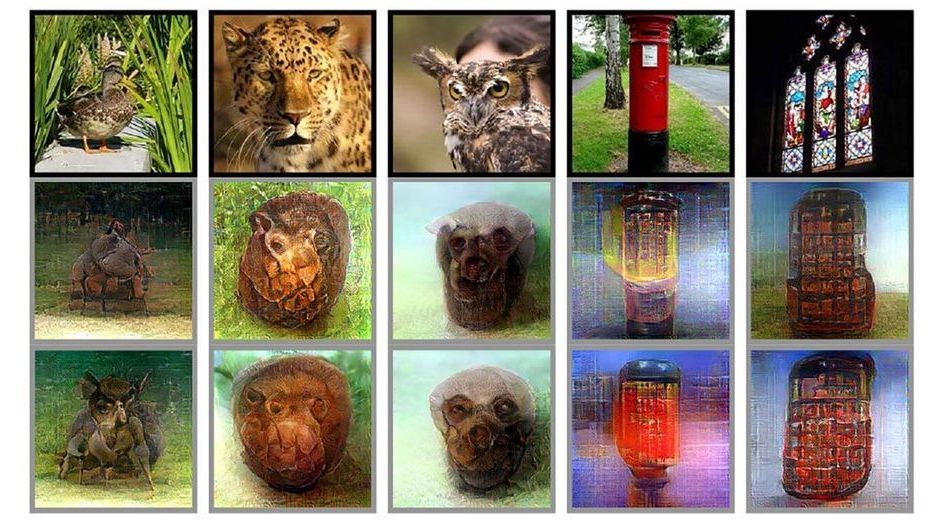
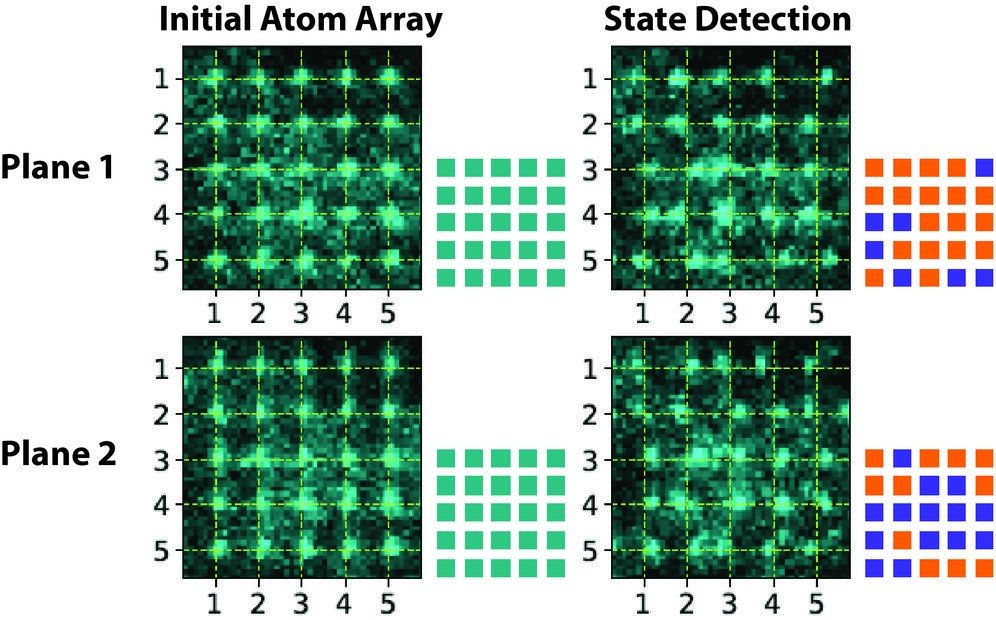
A new method allows the quantum state of atomic “qubits”—the basic unit of information in quantum computers—to be measured with twenty times less error than was previously possible, without losing any atoms. Accurately measuring qubit states, which are analogous to the one or zero states of bits in traditional computing, is a vital step in the development of quantum computers. A paper describing the method by researchers at Penn State appears March 25, 2019 in the journal Nature Physics.
“We are working to develop a quantum computer that uses a three-dimensional array of laser-cooled and trapped cesium atoms as qubits,” said David Weiss, professor of physics at Penn State and the leader of the research team. “Because of how quantum mechanics works, the atomic qubits can exist in a ‘superposition’ of two states, which means they can be, in a sense, in both states simultaneously. To read out the result of a quantum computation, it is necessary to perform a measurement on each atom. Each measurement finds each atom in only one of its two possible states. The relative probability of the two results depends on the superposition state before the measurement.”
To measure qubit states, the team first uses lasers to cool and trap about 160 atoms in a three-dimensional lattice with X, Y, and Z axes. Initially, the lasers trap all of the atoms identically, regardless of their quantum state. The researchers then rotate the polarization of one of the laser beams that creates the X lattice, which spatially shifts atoms in one qubit state to the left and atoms in the other qubit state to the right. If an atom starts in a superposition of the two qubit states, it ends up in a superposition of having moved to the left and having moved to the right. They then switch to an X lattice with a smaller lattice spacing, which tightly traps the atoms in their new superposition of shifted positions. When light is then scattered from each atom to observe where it is, each atom is either found shifted left or shifted right, with a probability that depends on its initial state.
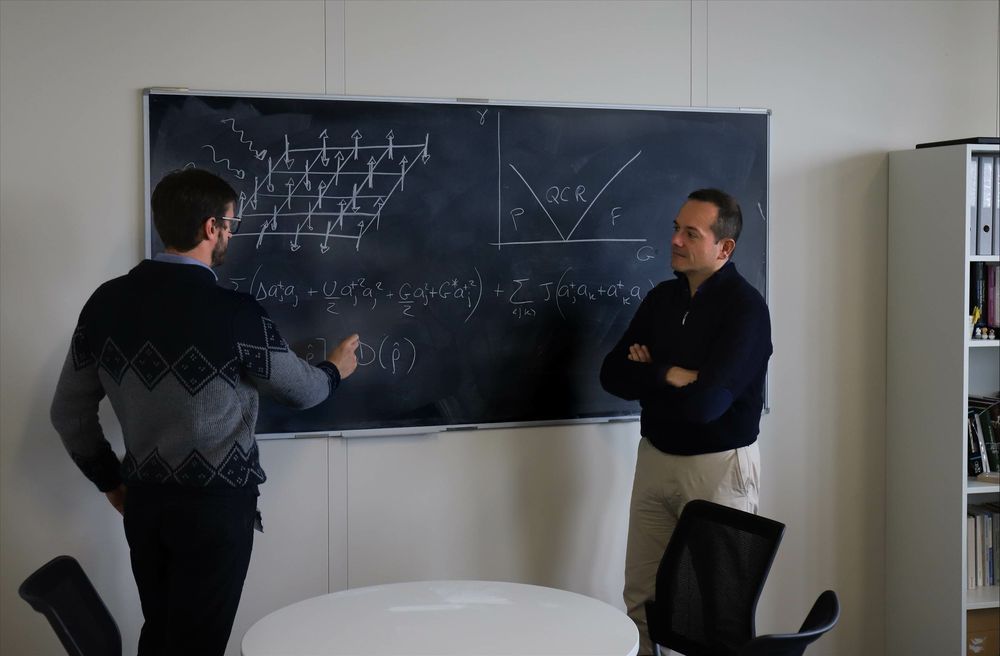
Physicists at EPFL propose a new “quantum simulator”: a laser-based device that can be used to study a wide range of quantum systems. Studying it, the researchers have found that photons can behave like magnetic dipoles at temperatures close to absolute zero, following the laws of quantum mechanics. The simple simulator can be used to better understand the properties of complex materials under such extreme conditions.
When subject to the laws of quantum mechanics, systems made of many interacting particles can display behaviour so complex that its quantitative description defies the capabilities of the most powerful computers in the world. In 1981, the visionary physicist Richard Feynman argued we can simulate such complex behavior using an artificial apparatus governed by the very same quantum laws – what has come to be known as a “quantum simulator.”
One example of a complex quantum system is that of magnets placed at really low temperatures. Close to absolute zero (−273.15 degrees Celsius), magnetic materials may undergo what is known as a “quantum phase transition.” Like a conventional phase transition (e.g. ice melting into water, or water evaporating into steam), the system still switches between two states, except that close to the transition point the system manifests quantum entanglement – the most profound feature predicted by quantum mechanics. Studying this phenomenon in real materials is an astoundingly challenging task for experimental physicists.
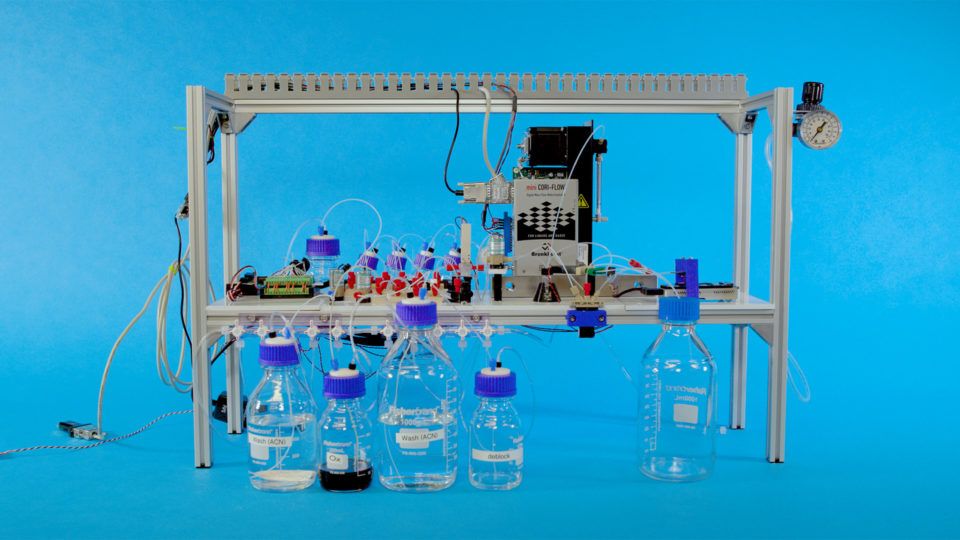
Microsoft has helped build the first device that automatically encodes digital information into DNA and back to bits again.
DNA storage: Microsoft has been working toward a photocopier-size device that would replace data centers by storing files, movies, and documents in DNA strands, which can pack in information at mind-boggling density.
According to Microsoft, all the information stored in a warehouse-size data center would fit into a set of Yahztee dice, were it written in DNA.
A good intro to QUANTUM COMPUTERS, at 5 levels of explanations — from kid-level to expert.
WIRED has challenged IBM’s Dr. Talia Gershon (Senior Manager, Quantum Research) to explain quantum computing to 5 different people; a child, teen, a college student, a grad student and a professional.
Still haven’t subscribed to WIRED on YouTube? ►► http://wrd.cm/15fP7B7
ABOUT WIRED
WIRED is where tomorrow is realized. Through thought-provoking stories and videos, WIRED explores the future of business, innovation, and culture.
Quantum computing expert explains one concept in 5 levels of difficulty | WIRED.

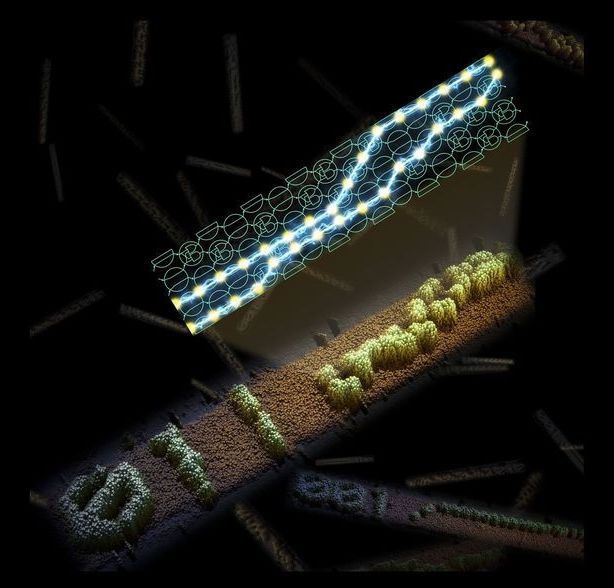
Computer scientists at the University of California, Davis, and the California Institute of Technology have created DNA molecules that can self-assemble into patterns essentially by running their own program. The work is published March 21 in the journal Nature.
“The ultimate goal is to use computation to grow structures and enable more sophisticated molecular engineering,” said David Doty, assistant professor of computer science at UC Davis and co-first author on the paper.
The system is analogous to a computer, but instead of using transistors and diodes, it uses molecules to represent a six-bit binary number (for example, 011001). The team developed a variety of algorithms that can be computed by the molecules.